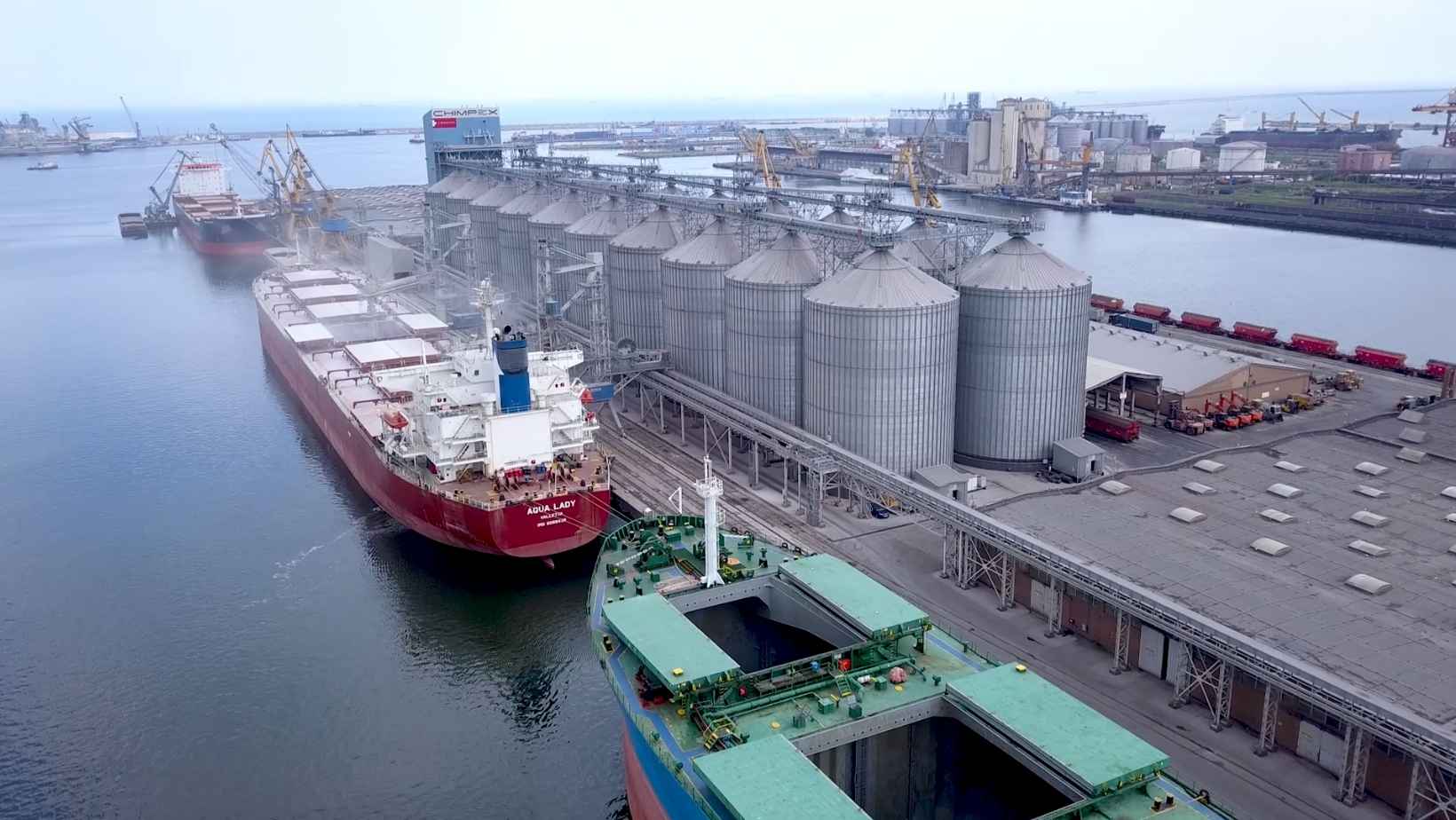
The port of Constanta cannot cope with a large amount of cargo from Ukraine. Imports began to interfere with exports
The Romanian port of Constanta is no longer able to handle a large amount of cargo from Ukraine, The loadstar reports. There are more and more traffic jams. It got to the point that imports destined for Ukraine began to interfere with the export of Ukrainian grain.
About 80 thousand tons of grain have already arrived, it is stored in elevators, some of it is loaded onto ships. Another 80,000 tons are on their way to Constanta,” Florin Goidea, director of the port of Constanta, told Reuters.
Last year, Ukrainian ports handled about 1 million TEU. But since the beginning of the war, after blocking the seaports of Ukraine, traders began to look for alternative routes for cargo. In the beginning, Constanta looked like the most optimal alternative. Now the containers are already 20 rows high, and the time spent at the terminal is constantly increasing.
According to the Odessa consulting company Informall, Romanian container terminals are now operating at full capacity. But it is too difficult to quickly process all the cargo that used to pass through the Ukrainian ports blocked by the Russian aggressor on the Black and Azov Seas. While the increase in transshipment means more profit for Constanta, it also requires the establishment of new standard operating procedures. That is, a number of restrictions should be expected.
According to the director of the port of Constanta, grain arrives by rail or on barges along the Danube. The port has the capacity to handle additional grain exports – the storage capacity at the port of Constanta is about 2 mil. tons. Last year, about 24 mil. tons of grain.
APK-Inform analysts reported that Ukrainian border guards blocked several waterways at the mouth of the Danube due to floating mines drifting in the Black Sea.
But Ukrainian Foreign Minister Dmytro Kuleba said last week in Bucharest that there was a chance to improve Danube infrastructure and trade routes.
There is a real significant chance that the Danube River will become even more economically profitable, and will connect the countries of the Black Sea region with the countries of Western Europe better from a commercial point of view,” Kuleba said.
This month, Romania's transport minister, Sorin Grindeanu, announced that a Soviet-style broad-gauge railway from Moldova to the port of Galati would be rapidly rehabilitated. This measure will speed up grain shipments.
Meanwhile, the port of Constanta reported that, together with the customs service, they are trying to develop facilitated procedures specifically for Ukrainian exports and imports. Some shippers, in order to avoid delays in the port of Constanta, have begun to unload containers at Turkish hubs, but from there they must also pass through Romania by rail.
According to experts, the Baltic ports, especially the Polish Gdansk and Gdynia, can alleviate the situation.




